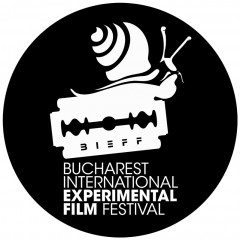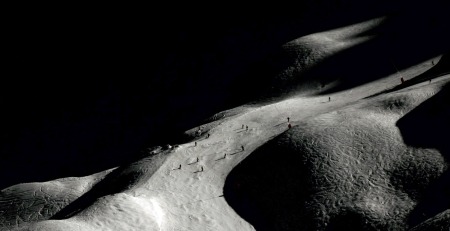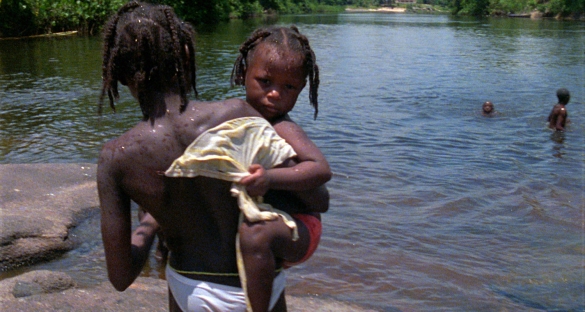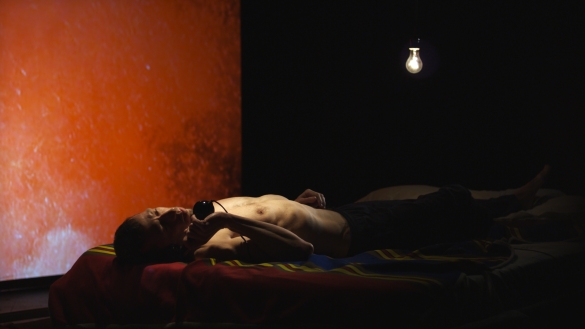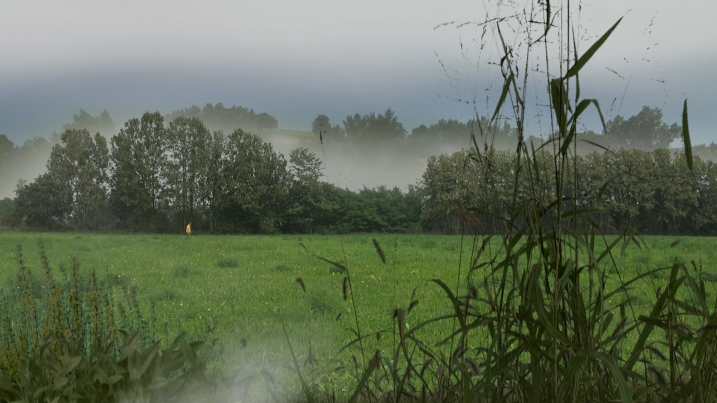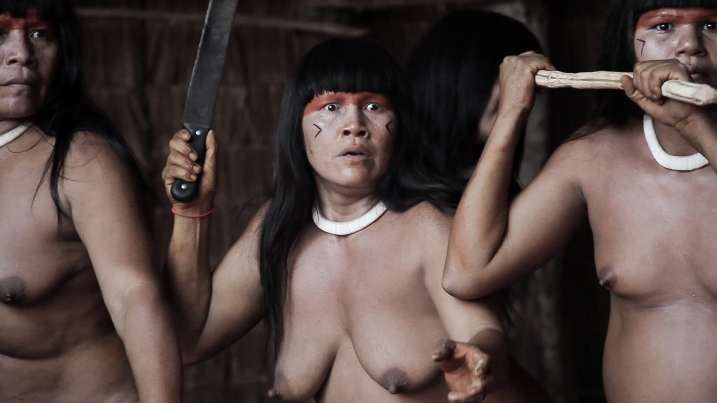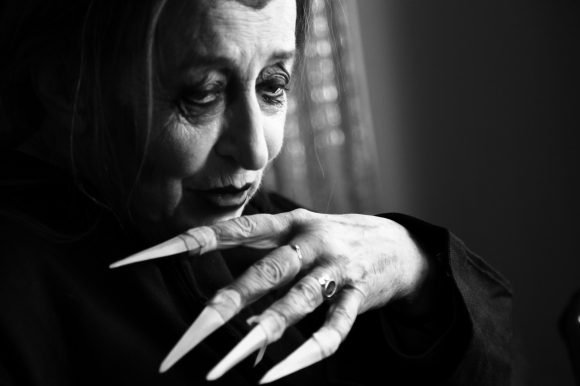Luciana Dumitru: MOUNTAIN IN SHADOW moves to more abstract images as they unfold, from the more romantic take in the most of your videos. What did you find interesting in this approach?
Tag Archives for experimental
RIVER RITES – Interview with BEN RUSSELL: “I never thought about film as a tool for translation but rather as a way of conjuring, as a means for bringing the unseen out of the shadows and transforming time into a body that we all could understand.”
Luciana Dumitru: Michel de Certeau writes about the experience of a French travel writer, Jean de Léry, in Tupi, using the term “remainder” for that which couldn’t be translated (into words). In Léry’s case, the overwhelming (subjective) aural and visual pleasures, from the language he couldn’t understand and strange sounds to the visceral experiences of being surrounded by naked bodies. De Certeau says “proximity is presence without possession.” In your experience of living within the community of Saramaccan animists can you talk about “remainders” that you wanted to pin down? If so, how did film help you? More importantly, what are the “remainders” of this film – RIVER RITES (which is different from the lived experience)?
AS THE FLAMES ROSE – Interview with JOÃO RUI GUERRA DA MATA: “As feelings are timeless, cinema should move in the same direction, an acute abstraction of reality that takes you forward while making you look back.”
Oana Ghera: You were inspired for AS THE FLAMES ROSE by Cocteau’s “La voix humaine”, a monologue written for theater whose theatricality you expose in various ways, from revealing its source (by posing the book on the character’s nightstand) to the expressionist play with the lighting (to name just one of your techniques). Yet, it seems to me, AS THE FLAMES ROSE is also a declaration of love for cinema as a medium, what with all the rear projections and TV footage, for artificial as they may be, still manage to expand the enclosed space of the studio in a deeply cinematic way. Where do you stand regarding the long theorised relation between cinema and theater? Where did the influence of the play end and where did that of cinema begin in your creative process? Or are they intertwined? And also regarding the matter of theatricality, how do you relate to Fassbinder’s work?
A PLACE TO COME – Interview with Flatform – “A Place to Come is the place of paradox on the impossibility of possible worlds.”
Redefining the perception of space as M.C. Escher used to explore it in paintings, A PLACE TO COME reveals the mutual references between a plain description of a place and its concrete demonstration. FLATFORM is a group of artists founded in 2007, based in Milan and Berlin. Their exhibitions and screenings were present in film festivals like Venice IFF, Rotterdam IFF, Tampere IFF, Nouveau Cinema IFF (Montreal, Canada), Indielisboa IFF (Lisbon, Portugal), etc. Continue reading
ENRAGED PIGS – Interview with Isabel Penoni and Leonardo Sette – “We worked guided by instinct and by the feeling that things should stay simple and mysterious.”
Once upon a time the men of the Cuicuro tribe didn’t return to their village after they went out to fish. Thus their women started to worry and sent one of the younger boys to go and look for them. When he came back he was shocked, all the men had turned into crazy pigs. ENRAGED PIGS embodies only one of the many legends the Cuicuro are passing on orally from generation to generation. Theatre director, actress and anthropologist, ISABEL PENONI was born in Brazil, in 1979. She is founder of Cia Marginal theater ensemble in Rio de Janeiro, has directed the plays, “Qual e a nossa cara?” (2007) and “O, Lili” (2011). LEONARDO SETTE attended classes in Cuba and France and obtained a degree in Cinema History from Sorbonne. Sette’s first short film, OCIDENTE (2008) won the best film award in Rio’s Film Festival, among others. His first documentary feature, THE HYPERWOMAN (2011) had its international premiere in Rotterdam. Continue reading
DRAWN FROM MEMORY – Interview with Marcin Bortkiewicz – “People on the screen never die.”
A young filmmaking student sets to make a film about his grandmother, who always wanted to be a horror film actress.Questioning the border between reality and fiction, DRAWN FROM MEMORY is an intriguing self reflexive short. MARCIN BORTKIEWICZ, film and theatre director, dramatist, screenwriter and actor, was born in Słupsk in 1976 AND graduated the University of Gdańsk and the Andrzej Wajda Master School of Film Directing. Continue reading
